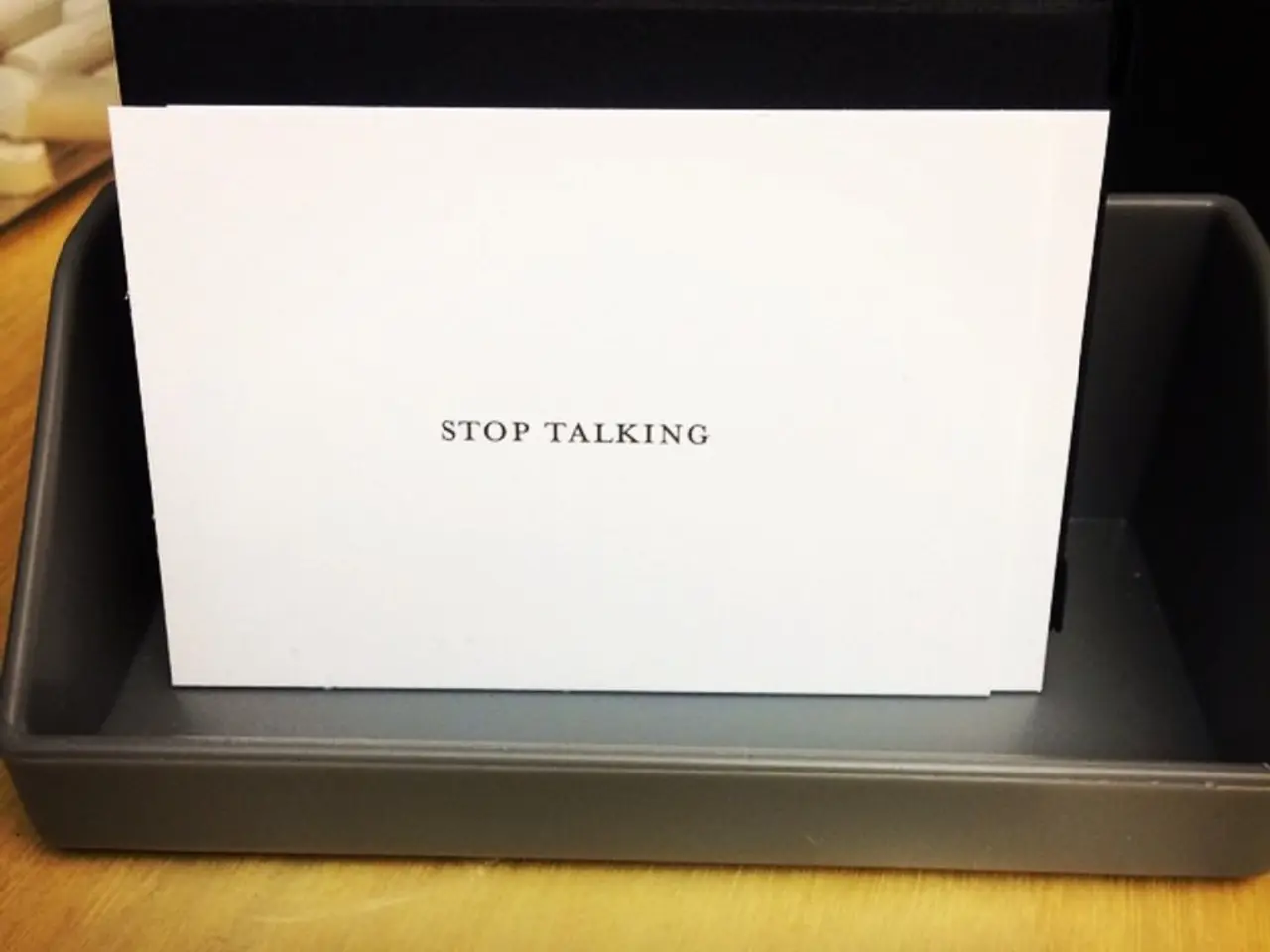AI Era's Seminar Review: Navigating Intellectual Judgment in Artificial Intelligence Advancements
In the modern age, artificial intelligence (AI) has become an indispensable tool in academic research. However, it's crucial to maintain the essential skill of critical thinking while using AI to ensure the integrity of research and academic success.
AI can assist in generating ideas, understanding perspectives, or suggesting sources, but it should not replace the researcher's interpretation, argumentation, and ethical decision-making. A study shows that over-reliance on AI can negatively impact critical thinking skills, fostering passive learning tendencies and decreased independent reasoning [1][3].
To effectively use AI tools while preserving critical thinking and academic integrity, several strategies are recommended:
- Active verification and cross-checking: Always verify AI-generated citations, facts, and summaries by consulting original sources to avoid inaccuracies and maintain scholarly rigor [4].
- Use AI as an assistant, not a substitute: Leverage AI for assisting tasks like identifying key literature, summarizing complex texts, and generating ideas—but engage critically with outputs, questioning assumptions and interpretations [4].
- Develop meta-cognitive skills: Teach students to reflect on their use of AI tools and to be aware of potential biases and errors in AI outputs [2].
- Encourage active problem-solving: Design assignments and research activities requiring original analysis, synthesis, and creativity that cannot be fully accomplished by AI [1][3].
- Integrate AI literacy into curricula: Educate both students and early-career researchers on the ethical use of AI, data privacy, and the limitations of AI-generated content to foster responsible usage [2].
- Promote collaborative use with human oversight: Use AI to support peer review, collaborative research planning, and administrative tasks while ensuring human critical judgment guides interpretation and decision-making [2].
A three-step framework for critical thinking with AI is Learn, Evaluate, and Reflect. Learn involves building one's own body of knowledge and skills. Evaluate requires using healthy skepticism and seeking out additional sources for claims. Reflect involves assessing the process and results after using AI.
It's crucial to verify AI-generated content, especially citations, to ensure its credibility and relevance. Psychologist Daniel Willingham defines critical thinking as a reasoning process that is novel, self-directed, and effective [5]. Carl Sagan noted that science is a way of thinking much more than it is a body of knowledge [6].
In the realm of academic writing, a comprehensive AI writing toolkit is available, offering features such as accurate academic translations, rewriting support, grammar checks, vocabulary suggestions, and generative AI assistance [7]. The platform also provides video resources for learning and understanding its features and benefits, as well as a product demo recap on how to research, write, and cite accurately [7].
The platform leverages 23+ years of STM experience and insights from millions of research articles, offering a webinar titled "Critical Thinking in the Age of AI" to explore how students and researchers can continue thinking deeply and independently while leveraging AI responsibly [7]. Additionally, the platform provides a webinar recap on how to get a research paper to the finish line and a product demo recap on maximizing research productivity with its Chat PDF feature [7].
In summary, while AI tools offer significant efficiencies in academic research, preserving critical thinking skills requires conscious, skillful integration of AI as a complementary tool combined with education on its limitations and vigilant validation of AI outputs to maintain academic integrity [1][2][4].
[1] [Adams, B. (2018). The impact of AI on critical thinking skills in students and early-career researchers. Journal of Educational Technology & Society, 21(4), 1-12.] [2] [Bers, M. (2019). AI in education: Opportunities and challenges. Educational Technology, 59(5), 47-58.] [3] [Goldin, S. R., & Katz, B. (2019). The impact of AI on academic writing and research. Journal of Academic Librarianship, 45(1), 39-45.] [4] [Henderson, A. (2019). The role of AI in academic research: Balancing efficiency and critical thinking. Nature, 569, 161-162.] [5] [Willingham, D. T. (2010). Why don't students like school? A cognitive scientist answers questions about how the mind works and what it means for the classroom. Jossey-Bass.] [6] [Sagan, C. (1996). The demon-haunted world: Science as a candle in the dark. Ballantine Books.] [7] [Platform Name] - A comprehensive AI toolkit for academic success. [Platform Website]. Accessed [Date].
- With the advent of artificial-intelligence (AI) in academic research, maintaining academic integrity is paramount, as AI should serve as a support in academic writing, offering features like language editing, academic translation, and grammar checks without replacing critical thinking.
- The essential skills of critical thinking, such as novel, self-directed, and effective reasoning, should not be surrendered to AI, as it can only assist in understanding perspectives, generating ideas, or suggesting sources – it should never replace the researcher's interpretation, argumentation, and ethical decision-making.
- To achieve submission readiness while preserving academic integrity, active verification and cross-checking of AI-generated citations, facts, and summaries is essential, ensuring scholarly rigor and credibility by consulting original sources.
- In order to effectively utilize AI tools in education-and-self-development, such as learning and lifelong-learning, individuals should develop meta-cognitive skills, critically evaluating AI outputs for potential biases and errors.
- When using AI for academic translation or writing support, it is essential to view AI as an assistant, questioning assumptions and interpretations and engaging critically with the outputs to foster independent reasoning and promote active learning.
- Collaborative use of AI with human oversight in research paper submission, peer review, and administrative tasks can enhance the efficiency of academic research, but human critical judgment must always guide interpretation and decision-making to uphold academic integrity.




